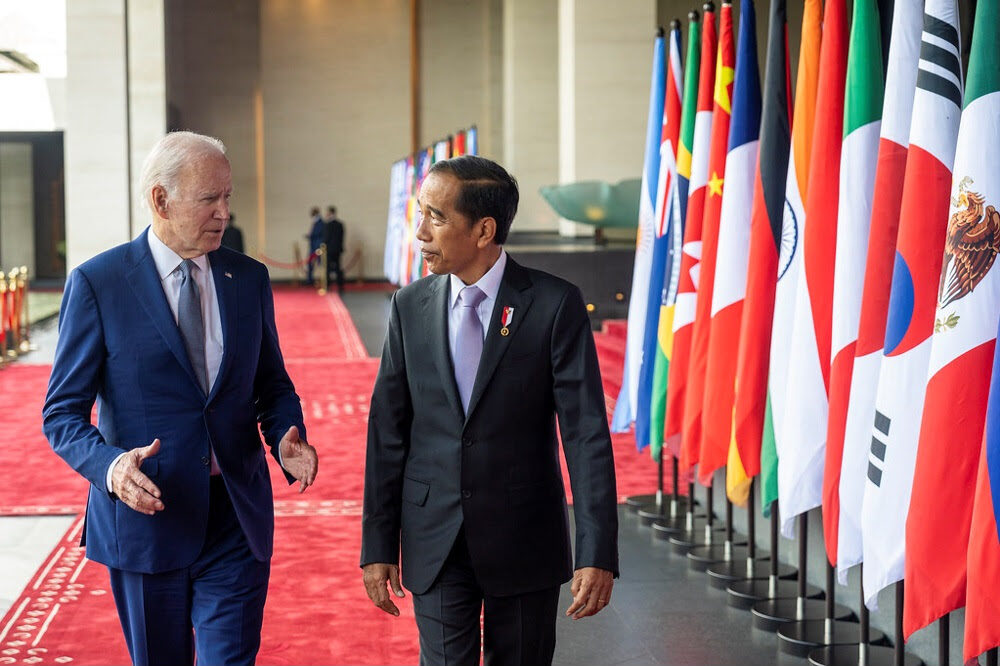Indonesia’s President, Joko Widodo, has urged Western nations to deliver the promised $20 billion for supporting Indonesia’s transition to green energy and to provide more assistance for its crucial resources, which are essential for technologies like electric vehicles and batteries.
In an interview with the Financial Times, Widodo expressed significant concerns in Indonesia regarding the delay in the funding, which had been committed by a group of advanced economies, primarily led by the United States, a year ago to help accelerate the phasing out of coal-powered plants in the country.
Widodo emphasized Indonesia’s commitment to energy transition and questioned the commitment of developed nations. He mentioned raising this issue at the G7 summit in Japan in May and the G20 summit in India in September. He pointed out that Indonesia has taken concrete steps, even developing the electric vehicle industry to support green energy, and expressed confidence in Western financing eventually coming through.
Widodo’s public statement comes at a time of significant geopolitical interest in the region. Indonesia has aimed to maintain a balanced position between Washington and Beijing during his nine years in office, with Chinese companies dominating the country’s nickel supply chain.
Before a bilateral meeting with US President Joe Biden at the Asia Pacific Economic Cooperation summit, Widodo intends to advocate for an exemption that would allow Indonesia’s nickel industry to benefit from subsidies in the Inflation Reduction Act. Indonesia, being the world’s largest nickel producer, has protested its exclusion from Washington’s substantial green energy funding package, with concerns that it could indirectly benefit Chinese companies controlling Indonesia’s nickel industry through joint ventures.
Widodo believes that reaching an agreement on this exemption would be a significant step for both Indonesia and the US and could be a breakthrough for the global electric vehicle industry. He firmly rejected the idea of segregating Indonesia’s nickel supply chain between China and the US, expressing the desire to keep options open for all countries while emphasizing the importance of the US market.
The Just Energy Transition Partnership, which promised Indonesia $20 billion for its transition away from coal, is viewed as a critical test of how developed nations and financial institutions will collaborate with developing economies on climate change. Multilateral organizations involved in the negotiations cited budget approval challenges as a significant reason for the delay, with the US, UK, and EU struggling to release the funds.
While Indonesia is calling for more funding to support its shift away from coal, the private coal power sector has continued to expand, particularly for nickel processing, which has been a point of contention with Western nations. Indonesia’s recent draft investment plan for the climate deal did not mention plans to reduce captive coal plants, many of which power nickel smelters.
The private sector in the United States, which is expected to contribute funds as part of the Just Energy Transition Partnership (JETP), has expressed concerns about policy uncertainties in Indonesia, particularly with President Widodo’s upcoming departure next year.
When asked about criticisms regarding Indonesia’s failure to reduce its reliance on coal for power, President Widodo did not directly address the issue but reaffirmed his government’s commitment to transitioning to a decarbonized economy. He emphasized their awareness of the serious problem of climate change and their intention to shift from coal to green energy.
In the meantime, China has seized an opportunity amidst the delay in Western funding. Ahead of the 10th anniversary of Xi Jinping’s Belt and Road Initiative in October, Beijing and Jakarta launched the Indonesia-China Energy Transition Cooperation dialogue, with China pledging significant investments in green initiatives for Indonesia.
Source: FT



















Leave a Reply